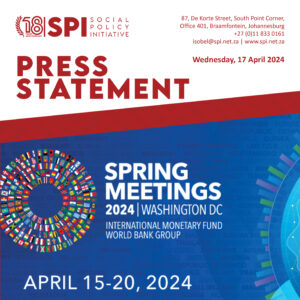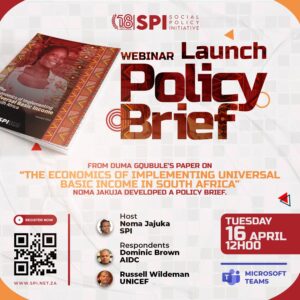PRESS RELEASE: STATE PROGRESS REPORT TO CESCR COMMITTEEE NOT REAL PROGRESS
1 July 2021
South Africa’s government has yet to get a handle on the increasing socioeconomic disparity, as the latest reports indicate that the unemployment rate reached 32.6 per cent in the first three months of 2021. South Africa submitted its State Report on 14 May 2021, albeit late, on the progress towards the implementation of certain socio-economic rights as had been recommended by the United Nations Committee on Economic, Social and Cultural Rights (CESCR Committee) Concluding Observations in October 2018.
Indeed, The South African state failed, despite the strong words to the contrary issued by the CESCR Committee, to consult with critical stakeholders such as the South African Human Rights Commission, civil society and structures of ordinary people, which flies in the face of the values of our constitution and the International Covenant on Economic, Social and Cultural Rights (ICESCR).
The South African government was required in terms of its obligations under the ICESCR, to submit a progress report by 31st October 2020, to indicate on steps and measures taken to address the three priority areas detailed in paragraph 83 of the CESCR Concluding Observations, namely; 1. Preparation of a composite index on the cost of living and access to social assistance for adults between 18 and 59 years of age; 2. The adoption of the Social Assistance Amendment Bill and a proposed increase in social grants to orphaned and abandoned children; and 3. Access to education for undocumented migrant, refugee and asylum-seeking children.
While progress regarding these three fault line issues (as identified by the CESCR Committee in its Concluding Observations) is noted, the State Report submitted was without substance. By defining the Consumer Price Index in response to the composite standard of living; it merely referred to a draft Discussion Paper about income support for unemployed people between 18-59 years of age and that initial consultations had commenced without indicating an implementation plan with clear timeframes and a budget to pay the grant.
In its report to increase the level of child support grants for orphaned and abandoned children living with relatives, it refers to Regulations that was meant to be passed by April 2021. This did not happen and the proposed Regulations do not clarify how the provisions will increase the support. While the State reports that it removed all requirements of the submission of legal documents as condition for the admission of learners in schools, it omits that this was a result of legal action by civil society groups. As such, South Africa still falls short of its constitutional and international legal commitment to fulfil its socio-economic rights obligations.
It is evident that the government hasn’t properly grappled with South Africa’s historical legacy of inequality, further highlighted in the current context of COVID19. As such, the pandemic has revealed fundamental fault lines and gaps in South Africa’s commitment and capacity to fulfil social-economic rights. Civil society actors call upon the Government to engage and consult them in the lead up to the upcoming session of the CESCR Committee where the State ‘progress’ report is expected to be presented by the end of August 2021.
While governments bear the responsibility to draft the report, the involvement of other stakeholders is considered vital to ensuring the completeness and objectivity of the process. South Africa is also expected to submit its second periodic report on the measures taken to fulfil its obligations under the ICESCR by 31 October 2023. It is crucial that civil society and other relevant stakeholders are engaged and consulted in the process of preparations of the periodic report.
South Africa has the potential to champion the realisation of socio-economic rights. Any such role would be immeasurably by working with civil society to accurate report on ESCR and ratifying the Optional Protocol of the International Covenant on Economic, Social and Cultural Rights which will allow individuals and groups within South Africa to seek justice from the United Nations should these rights be breached by the government. Such ratification would also demonstrate its commitment to reducing poverty and ensuring access to justice for all.
Download the full shadow report here
Download more information about the Committee’s 64th session (24 September – 12 October 2018) here
ENDS
Issued by the steering committee of the Civil Society Coalition Campaign for South Africa’s Ratification of the ICESCR and its Optional Protocol which comprises:
Black Sash, Dullah Omar Institute (DOI), People’s Health Movement South Africa (PHM-SA), Socio-Economic Rights Institute of South Africa (SERI) Studies in Poverty and Inequality Institute (SPII)
For more information or interview requests, please contact:
Ebenezer Durojaye Dullah Omar Institute (DOI) University of the Western Cape Email: edurojaye@uwc.ac.za
Hoodah Abrahams-Fayker Black Sash Email: hoodah@blacksash.org.za
Isobel Fyre Studies in Poverty and Inequality Institute (SPII) Email: isobel@spii.org.za
Kelebogile Khunou Socio-Economic Rights Institute of South Africa (SERI) Email: Kelebogile@seri-sa.org
Lilian Chenwi Professor, Wits School of Law Email: lilian.chenwi@wits.ac.za









